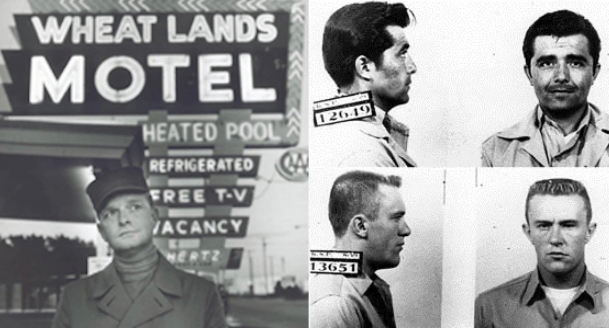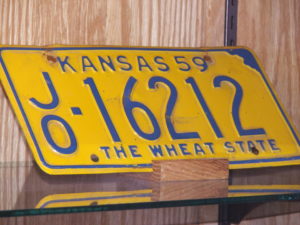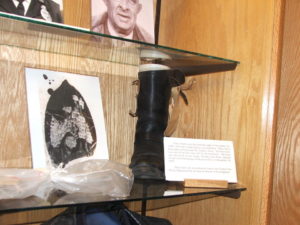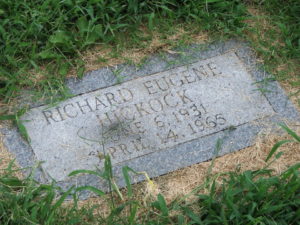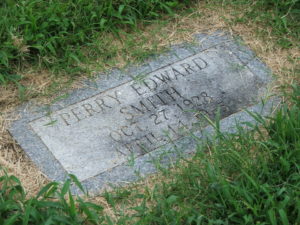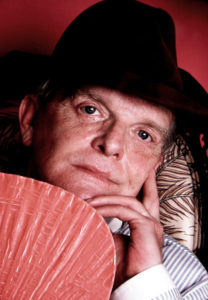On November 14, 1959, two petty criminals, Dick Hickock and Perry Smith, crossed Kansas, murdered the Clutter family in the tiny hamlet of Holcomb, Kansas and unwittingly enabled a New York City writer named Truman Capote to achieve immortality for all three of them.
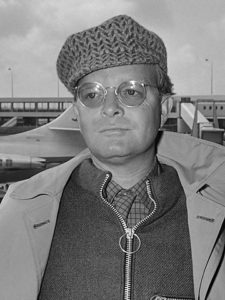
When Truman Capote arrived in Kansas, Smith and Hickock were not yet on law enforcement’s radar. Capote’s initial intent was to write about the reaction of the town and its inhabitants but he had at least enough self awareness to understand that it would be next to impossible for someone with both his New York and blatantly homosexual persona to ingratiate himself to the appropriate degree.
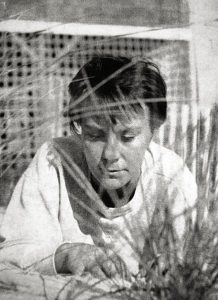
Capote enlisted Harper Lee as his partner in journalism and set about trying to induce the locals, both law enforcement and private citizens, into sharing any valuable insight. His initial wardrobe of a pillbox style hat, long sheepskin coat and scarf that hung all the way to his feet did him no favors but Harper Lee seems to have helped him win over his most productive source and access to important information. Alvin Dewey, as a member of the Kansas Bureau of Investigation or KBI, the state agency with jurisdiction over the investigation and a resident of Garden City, was logically designated to coordinate the investigation with other assigned members of the KBI. Initially repelled by Capote, Dewey eventually was charmed especially by Harper Lee, who also became friendly with Dewey’s wife Marie, and it wasn’t long before Capote and Lee were getting regular invitations to dinner.
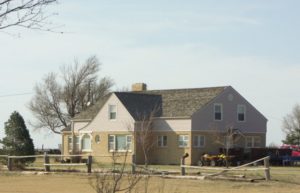
Arriving shortly after midnight on the morning of November 15, a full moon completely illuminated both the Clutter home, and the expansive series of barns, which Smith said excited Hickock, Dick thinking the proprietor of such a spread had to possess a great deal of money. With no need for headlights, Hickock shut them and the car engine off and parked behind a tree, allowing the two men to appraise the situation.
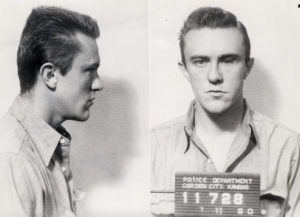
Richard Eugene “Dick” Hickock was born on June 6, 1931 in Kansas City, Missouri. His parents, Walter and Eunice, were typically devout, hard working lower middle class Kansas Midwesterners who raised their family on a 44 acre farm in the small town of Edgerton. Walter Hickock worked as a mechanic by day and farmed his acreage during off hours. Industrious, he built the farm’s main family residence by himself. His oldest of two sons, Dick was popular in high school and lettered in several sports but Dick’s parents were unable to provide the financial means to send Dick to college after his graduation in 1949. Instead, he went to work for the Santa Fe Railroad and pursued another interest, women. Many surmise that the critical event in Hickock’s life was a serious car accident in 1950, in which he was almost killed, spent days in the hospital and emerged with disfigured facial features and possibly permanent brain damage. Married at age 19 to his 16 year old girlfriend who produced two children, Hickock seems to have undergone a personality change in which he suddenly began gambling, kiting checks and living beyond his means. He also managed to conceive a child with another woman, prompting a divorce from his first wife. Saying that he wanted to “do the right thing,” he married the mother of his third child but continued to subsidize menial jobs, mostly as an auto mechanic, with petty crime. Whether it was for writing bad checks or stealing a rifle from a private residence, Hickock finally caught his first five-year jail sentence in 1956 for “cheating and defrauding.” He was paroled from Kansas State Penitentiary on August 13, 1959.
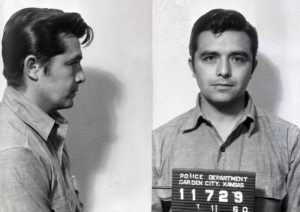
Perry Edward Smith was born in Huntington, Nevada on October 27, 1928, perhaps appropriately, his birthplace is now a ghost town. His father John “Tex” Smith and mother Florence “Flo” Buckskin were rodeo riders who performed in small towns across the northern great plains. Described as a full blooded Cherokee by Capote, Flo was in fact Shoshone-Paiute. In 1929, Smith’s parents moved to Juneau, Alaska, where Tex hustled a living as a bootlegger. Both parents were alcoholic, Tex violently abusive to both his wife and his four children and frequently absent for lengthy periods of time. During these absences, Flo engaged in numerous adulterous affairs, eventually precipitating an especially violent beating at the hands of Tex in 1935, behavior that convinced Flo to flee to San Francisco. Usually in an alcoholic haze, she was unable to care for her children, who were eventually placed in a series of institutions and Catholic orphanages, Perry already arrested by the age of eight. Subjected to repeated physical abuse, especially at the hands of the nuns he frequently encountered, Smith evolved into an angry and aggressive loner, constantly in conflict with others. Eventually, his father intervened, removing Perry from San Francisco and taking him throughout Nevada and Alaska, settling in the latter state until Perry’s enlistment at age 16 in the Merchant Marine. After that, in 1948, he enlisted in the US Army, serving in both Japan and Korea and receiving the Bronze Star for action as a combat engineer during the pivotal Battle of Inchon. But, despite his honorable discharge, he frequently fought with other soldiers and civilians and spent lengthy periods in the stockade. He intended to return to Alaska and live with his father but, most likely because of their tempestuous relationship, he moved to Washington State in the summer of 1952 and there he suffered a serious motorcycle accident that almost forced the amputation of both legs and left him with a permanent limp, constant pain and an aspirin addiction. While in Washington he also fathered an illegitimate son, who was raised by an Army buddy as his own child. Smith then spent a year convalescing in a hospital before returning to Alaska, where he hoped to reunite with his father. They built a hunting lodge together in a remote part of the state, called the Trapper’s Den Lodge but had a serious and violent falling out in 1955, when the lodge failed. Smith drifted across the Midwest and with a partner, broke into an office in Phillipsburg, Kansas where they stole anything of value. Arrested after a traffic stop, Smith and his accomplice broke out of jail, stole a car and it was New York City before Perry was apprehended by the FBI and taken back to Kansas to face the music. In 1956, he received five to ten years for the previous burglary and interstate flight. It is at the Kansas State Penitentiary that he met Dick Hickock, at some point sharing a cell.
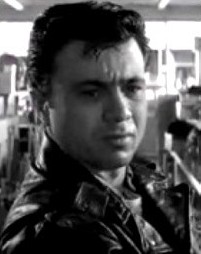
The 1967 film reproduction of the book only added to Capote’s celebrity runway. While some have attributed the author’s downward spiral to the emotional trauma of his involvement with Hickock and Smith, Capote’s thinly concealed eagerness for the two men’s execution and his alcoholism and drug abuse were only enabled by the ability to coast along on his reputation, his great wealth allowing a lifestyle of indulgence and artistic inactivity.
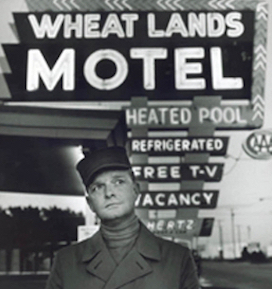
By the time the two suspects were returned to Garden City, Capote had so ingratiated himself with Alvin Dewey that he was granted a privilege denied to every other journalist covering the Clutter case; interview access to Hickock and Smith. This would not be the only benefit granted by Dewey but it was extremely significant. The egotistical, verbose Hickock was an easy subject for Capote who drained him of as much information as possible but Perry Smith was initially wary. Ultimately fascinated by Capote and, insecure about his lack of formal education, that a man of letters would be interested in conversing with him, Smith also established a close relationship. After getting this exclusive access, Capote then returned to New York with Harper Lee, as there was nothing for him to do but wait for the trial, scheduled for March 22, 1960.
Podcast: Play in new window | Download
Subscribe: RSS

